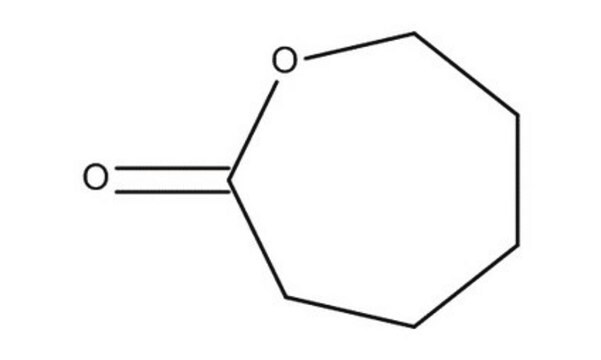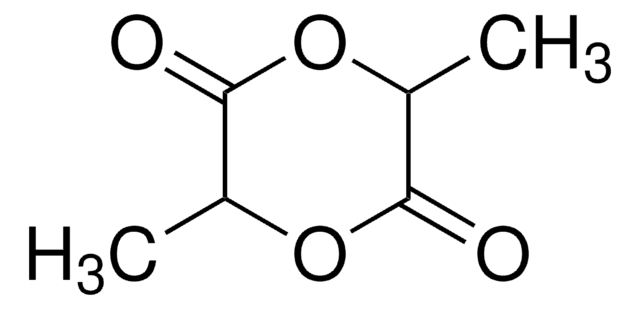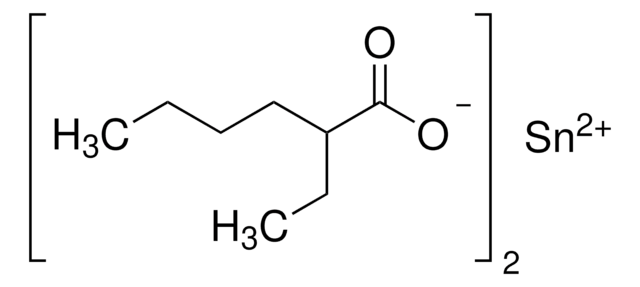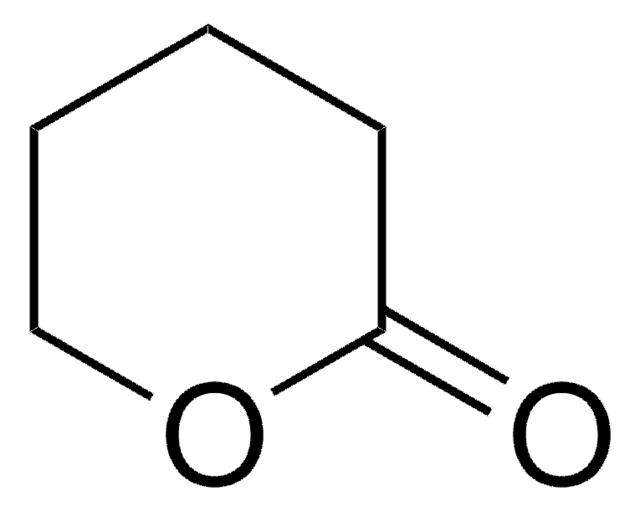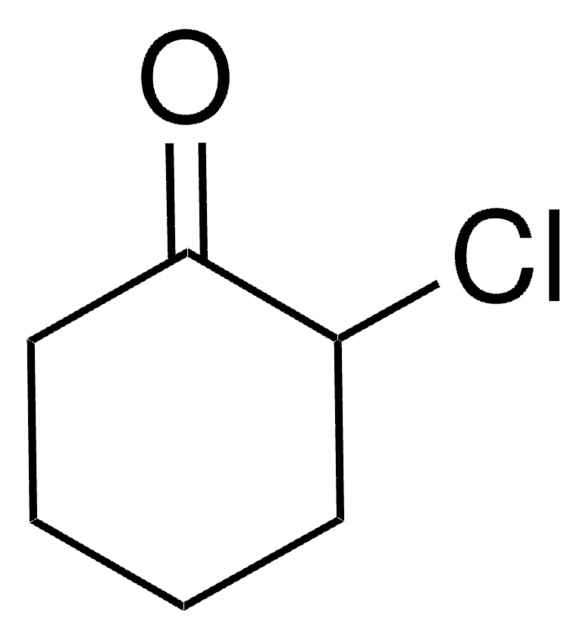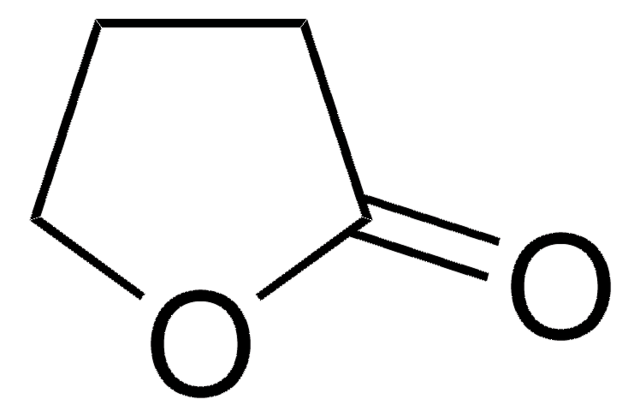900878
2-Chloro-ε-caprolactone
Synonyme(s) :
α-Chloro-ε-caprolactone, αClεCL, 2-Chloro-1-oxacycloheptan-2-one
About This Item
Produits recommandés
Essai
98% (NMR)
Niveau de qualité
Forme
liquid
Couleur
colorless to faint yellow
Température de stockage
−20°C
Chaîne SMILES
O=C1C(Cl)CCCCO1
InChI
1S/C6H9ClO2/c7-5-3-1-2-4-9-6(5)8/h5H,1-4H2
Description générale
Application
Code de la classe de stockage
10 - Combustible liquids
Classe de danger pour l'eau (WGK)
WGK 3
Point d'éclair (°F)
Not applicable
Point d'éclair (°C)
Not applicable
Faites votre choix parmi les versions les plus récentes :
Certificats d'analyse (COA)
Vous ne trouvez pas la bonne version ?
Si vous avez besoin d'une version particulière, vous pouvez rechercher un certificat spécifique par le numéro de lot.
Déjà en possession de ce produit ?
Retrouvez la documentation relative aux produits que vous avez récemment achetés dans la Bibliothèque de documents.
Notre équipe de scientifiques dispose d'une expérience dans tous les secteurs de la recherche, notamment en sciences de la vie, science des matériaux, synthèse chimique, chromatographie, analyse et dans de nombreux autres domaines..
Contacter notre Service technique
